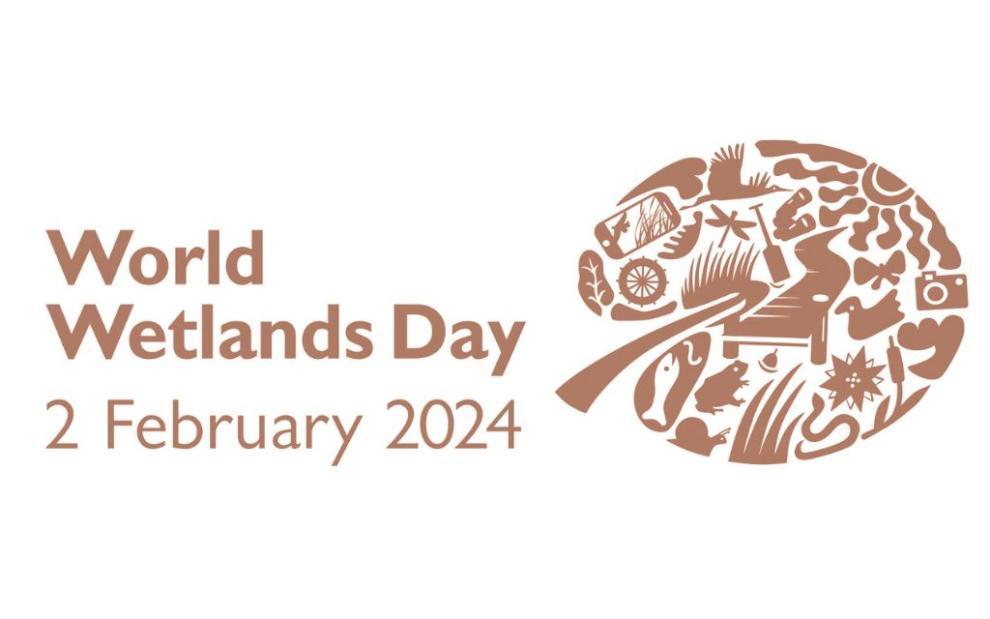We celebrate World Wetlands Day 2024!

Wetlands play a pivotal role in sustaining life on Earth. Yet covering only 6% of the Earth's surface, they provide important ecosystem services such as flood mitigation, water quality improvement, and groundwater aquifer recharge, all while maintaining biodiversity. However, wetlands are constantly threatened by pollution, climate change, dams, agriculture and aquaculture, and human development. It is estimated that 64% of the world's wetlands have been lost since the 1900s due to urbanization and that between 300 million and 400 million people live close to and depend on wetlands.
As the urban population is projected to increase to 68% by 2050, more land will be needed for housing or economic activities. Wetlands may be destroyed in the pursuit of land for buildings, agriculture, and industry. And this is not a benefit for our humanity: ongoing wetland loss is driving a vicious cycle of declining biodiversity and deepening poverty.
The Significance of World Wetlands Day
World Wetlands Day, celebrated every 2nd of February since 1997, marks the anniversary of the Convention on Wetlands, the first modern global multilateral environmental agreement adopted in 1971 and signed in Ramsar, Iran. This global event serves as an opportunity for nations and people worldwide to unite in fostering awareness, appreciation, and action for wetlands. The 2024 theme, "Wetlands and Human Wellbeing," emphasizes the interconnectedness between the health of wetlands and various aspects of human life.
Our health and well-being is related to wetlands
Despite our dependence on water, freshwater is scarce, constituting only 2.5% of the Earth's water. In line with the World Health Organization's One Health approach, the health of humans, animals, and ecosystems are closely intertwined. Wetlands, often referred to as the Earth's kidneys, play a vital role in providing almost all our freshwater. They filter and store water, contributing significantly to our food security, as more than half of the world relies on wetland-grown produce for their staple diet. Managing wetlands effectively can help also in improving mental well-being. The connection to nature fosters mindfulness and emotional balance, contributing to improved mental health. Moreover, wetlands provide recreational opportunities, offering spaces for activities like fishing, water sports, and swimming, allowing people to relax and manage stress.
Economic and social contributions: the role of the REWET project
The REWET project aims to accelerate the restoration of terrestrial wetlands across Europe (more specifically in the Netherlands, Austria, Finland, Estonia, Belgium, Italy, and Portugal) and sets the stage for the replication of tested solutions across Europe. Apart from the fundamental work that is being carried out for the ecological restoration, a huge stake of the REWET research activities is focused on ensuring that ecosystem services provided by restored wetlands and their long-term management results in investments with significant societal benefits.
From rice farming to fishing and tourism, wetlands contribute to job creation, poverty eradication, and economic growth. Additionally, wetlands have inspired cultures globally, with songs, dances, and stories expressing respect and reverence toward these vital ecosystems.
"Fandango do Varapau" is a typical dance in Alpiarça, one of our Open Labs, and REWET had the pleasure to watch a live performance of it.
REWET experts are engaging with local communities and stakeholders with training on capacity development and awareness, accompanied by the development of a social monitor to track social acceptance of the wetlands, which will differentiate between stakeholders that are directly impacted (farmers, landowners, and managers) and stakeholders that are indirectly impacted (citizens). To reduce cultural effects, the surveys and trainings will be carried out in the same language spoken by the local community.
Training and social monitoring are supported by business model studies. REWET sustainable business models, to be co-developed with the key stakeholders of the REWET Open Labs, will foster green growth, biodiversity and ecosystem services preservation and restoration, as well as social aspects including inclusiveness, governance, and gender aspects. The studies on business models and cases will be supported by other actions, such as an impact innovation accelerator, and the advances in the social and economic research in wetlands will be available with different tools, such as a Decision Support System for wetlands managers, and a roadmap plan for wetlands restoration in Europe (2025 - 2050) to directly support the achievement of the Biodiversity Strategy Goals and EU Green Deal for the climate.
It’s time to act!
Wetlands, often overlooked and undervalued, are fundamental to human well-being and the health of the planet. As we celebrate World Wetlands Day in 2024, it is crucial to recognize the significance of wetlands and take positive actions for their conservation and restoration. Understanding their contributions, ensuring sustainable use, and attracting investments are essential steps. Joining the global effort, aligned with the UN Decade on Ecosystem Restoration (2021-2030), can make a meaningful impact in safeguarding wetlands for the well-being of present and future generations.